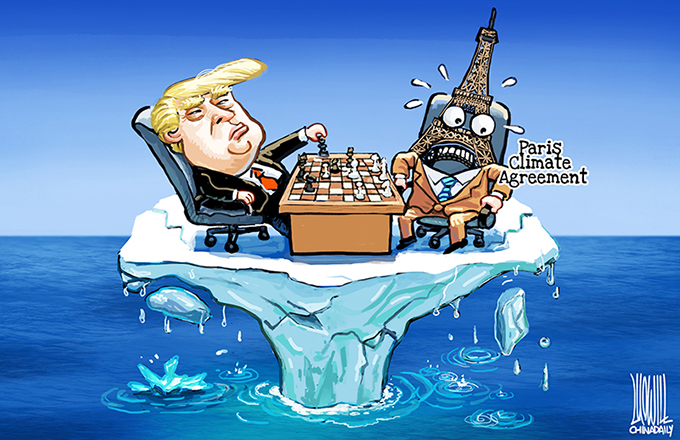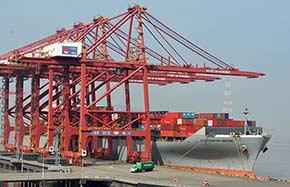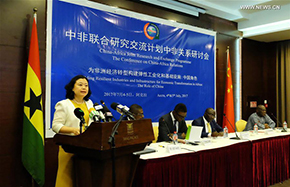Committed to safeguard Chinese Dream
 |
| LI MIN/CHINA DAILY |
 |
|
Zhu Songling [Photo/China Daily] |
In response to a move proposed by Taiwan education authorities to scale down classical Chinese content in Chinese language textbooks for senior high schools, An Fengshan, spokesman for the Taiwan Affairs Office of the State Council, said on Wednesday that any attempt to distance the island from Chinese culture will not gain public support.
A number of activities marking the 30th anniversary of the resumption of cross-Straits exchanges are under preparation. Despite the souring of cross-Straits ties since Tsai Ingwen became Taiwan leader in May last year, trade between the two sides increased in the first half of this year, to $87.49 billion.
On various occasions during the past five years, President Xi Jinping has systematically elaborated on his views on cross-Straits relations-from an institutional approach to national reunification. What is particularly notable is that his thoughts and proposals are more than theoretical, since he spent more than 17 years before 2002 working in East China's Fujian province, which sits on the Chinese mainland side of the Taiwan Straits.
Xi's proactive thoughts on cross-Straits ties, pivoting national reunification and aiming to rein in the island's separatist forces and build a community of shared destiny, will add to the consistency and efficiency of the mainland's Taiwan policy.
On the one hand, Xi's 17-year work in Fujian will help more accurately grasp the ever-changing public opinions in Taiwan and respond to concerns shared by compatriots on the two sides of the Straits. On the other hand, his Chinese Dream of the rejuvenation of the Chinese nation and safeguarding sovereign integrity, has borne fruit and will keep reunification high on the agenda.
The meeting between Xi and then Taiwan leader Ma Ying-jeou in Singapore two years ago was the first of its kind since 1949. Their unequivocal commitment to the one-China principle enshrined in the 1992 consensus has significantly widened the room for policy maneuvering. And despite the undesirable uncertainties following Tsai's election as the island leader, Xi has reiterated that reunification is necessary for the rejuvenation of the Chinese nation.
For the mainland, the focus of its major policies toward Taiwan will be on marginalizing those pursuing the "independence" of the island. Chinese compatriots on both sides, as Xi stressed, will not tolerate any attempt to divide the country again, not at least when "we have steadfast determination, strong confidence and sufficient capability to get rid of separatists". That goal will be pursued at all costs.
Integrated development, be it trade or people-to-people exchanges, will be another focal point. The peaceful development of cross-Straits ties for eight years while Ma was in office, along with three decades of grassroots interaction, is evidence that compatriots on both sides of the Straits, while reconciling over historical issues, improve their livelihoods using their cultural proximity and economic complementarity.
To deepen the hard-won civil interaction, Taiwan compatriots on the mainland will get extra assistance from the government to adapt to the local way of life, and grassroots and regional exchanges, particularly between youngsters, will be highlighted in the mainland's policy toward Taiwan. Which shows whichever party rules the island, the mainland's commitment to safeguarding sovereign integrity will remain as strong.
The author is a professor at the Institute of Taiwan Studies, Beijing Union University.
- Mainland spokesman stresses one-China principle when commenting Taiwan's int'l activities
- Attempts to distance Taiwan from Chinese culture doomed: spokesperson
- Trial of Taiwan defendant follows due process: spokesman
- Taiwan covert move fails
- Video of Taiwan youth criticizing 'pro-independence' advocates goes viral
- Taiwan suspect stands trial for inciting state subversion
- Taiwan-funded businesses flock to Fuzhou park



















